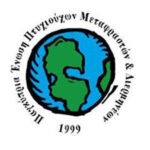Official translation is a complex issue which frequently leaves the general public feeling confused. It’s also often the case that public officials don’t have adequate knowledge about it to provide proper information and instructions. For your convenience, I’ve prepared a guide to official translations. In it, I tell you what you need to be careful about, as you properly prepare your documents for translation. Since the procedure and standards to be followed in official translations are specific, I recommend that you carefully examine the Guide to avoid unnecessary bureaucratic hardship.
What is an official translation? How is it different from an ordinary translation?
Official translations are translated documents which end up with public (or even private) authorities and are used as evidence or supporting documents which determine the outcome of various cases. Just some examples include:
- translations used as evidence in court and determining the outcome of a trial
- translations submitted as supporting documents to social security providers which affect acceptance or rejection of a pension application or the pension amount
- translations of medical opinions and examinations submitted to hospitals used to determine how to continue treatment
- translations of qualifications and supporting documents which will affect the decision whether or not an employee meets recruitment criteria
- translations of technical specifications and declarations of conformity with the relevant legislation under which marketing authorisations for imported products are granted
- translations of tax documents requested to handle various cases at tax offices, etc.
These are official translations and differ from the ordinary translations in that the translator is called upon to affix his/her signature and seal and thereby assume legal responsibility for the correctness and accuracy of the translation.
Although translation in general is not a closed profession (meaning that anyone can register as a translator with the tax office) in the case of official translations, precisely because of the criticality of the documents outlined above, the law only grants the right to do official translations to specific groups of professionals.
So who is entitled to do official (certified) translations in Greece?
As far as translators in the free market are concerned, the Greek State grants translation graduates from the Ionian University the right to do official translations. The right of translation graduates of the Ionian University derives from Presidential Decree 169 of 17.6.2002 (Government Gazette 156/2.7.2002) and in particular Decision No. ΔΙΣΚΠΟ/Φ22/5583 of the Ministry of the Interior and Council of State Judgment No. 2799/2013. Ionian University graduates are also included as official translators in many circulars from various departments.
The translations done by translation graduates from the Ionian University are recognised by public and private bodies in Greece and abroad. I fall into this category because I am a graduate of the Department of Foreign Languages, Translation and Interpreting of the Ionian University and a member of the Panhellenic Association of Professional Translation Graduates of the Ionian University (PEEMPIP). So, since I have the right to sign and certify my translations, I can assist you in your dealings with the authorities.
Others entitled to prepare official translations in Greece are:
- The Ministry of Foreign Affairs’ Translation Service for translation of foreign-language documents into Greek and Greek documents into a foreign language. Actually, this service was abolished by Law 4781/2021 in September 2021 and it is now replaced by the Certified Translators Registry-Μητρώο Πιστοποιημένων Μεταφραστών, formed by former Translation Service employees.
- Lawyers, who can only translate foreign documents into Greek (after completing my studies at the Athens Law School I will be able to sign in my capacity as a lawyer too).
- Notaries public, whose right is limited to translating foreign-language documents which are useful in preparing decisions within their remit into Greek.
All official translations done by the aforementioned bodies/persons have equal effect. In order to ensure better customer service, I recommend that you check first with the department/body you plan to file the documents with, to see whether they will accept the translations, since some bodies may follow special rules and have specific, express requirements that you will need to comply with.
How should I prepare my documents to get an official translation?
Once you’ve clarified who you will assign the official translation to, the next step is to prepare your documents. To that end, it is a good idea to take into account the following information.
The original text will be attached to the official translation and the two documents together constitute a single, integral whole. The original, which is to be attached to the certified translation, may be in the following formats:
- An ordinary copy of the original: It can be delivered in hard copy or electronic format. If you opt for electronic format, I always recommend that you send it in PDF format to make it easier to print a copy.
- The authentic document you have in your possession: If it is necessary for the authentic document to be attached to the translation, and not a copy thereof, it should only be delivered in hard copy. In this case you can bring it to my office or send it by mail.
- A certified original or certified copy of the original: It must also be provided in hard copy. In this case you can bring it to my office or send it by mail. Where any certification of the original or a copy thereof is required, such as a Hague Apostille or an original certified by consular authorities, such certification must be affixed to the documents before the translation process commences.
Which of the above formats you will choose depends primarily on the rules set by the department the documents are to be submitted to. It is always a good idea to clarify things with the competent officer in advance before the translation process commences.
FAQs
My certificate has been issued in another country. Should the translation be done by the consulate there or by official translators from the issuing country and not in Greece?
Consulates do not provide translation services to the public. What they usually do is collaborate with official translators in their region to meet their own needs. In other words, if a procedure is to be carried out locally, say at the Stuttgart consulate for example, then employees will not send the citizen to Athens to get official translations done and bring them to it. It is reasonable and more practical to recommend a translator who works locally. However, that does not mean that all documents issued in Germany must necessarily be translated in the same way. If you’re already in Greece, it is preferable and more practical to contact one of the bodies/persons described above. In effect, you should be guided by the body to which the documents are to be submitted. Since each country has its own rules on accepting official translations, it is always a good idea to request clarifications from the competent department before you start the translation process.
Should the documents bear the Hague Apostille so that they can be translated?
The Hague Apostille is affixed to public documents in order to confirm the authenticity of the signature and the capacity in which the signatory acted. Whether you need it or not does not depend on the translator. It depends primarily on the body the documents are to be submitted to and you need to clarify that. The official translation can be done without the Hague Apostille. However, if the competent officer at the department you are submitting the documents to requests it, you should ensure that it is included in your documents before the translation process commences. NB: THE HAGUE APOSTILLE SHOULD ALWAYS BE OBTAINED BEFORE THE TRANSLATION IS DONE.
For more details on procedural aspects of the Hague Apostille, please consult the following links (in Greek):
http://www.apdattikis.gov.gr/wp-content/uploads/sfragida%20tis%20xagis/xrisimes-plirofories.pdf
http://www.ypes.gr/UserFiles/f0ff9297-f516-40ff-a70e-eca84e2ec9b9/Apostille-11062015.pdf








